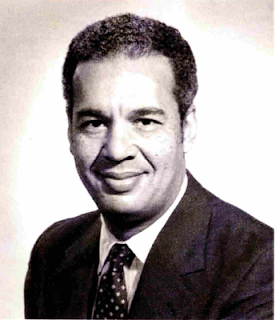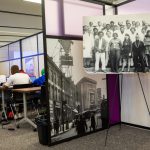February marks Black History Month, an annual celebration honoring the achievements of African Americans. Black History Month began in 1976, but has roots decades earlier as a recognition of the birthdays of President Abraham Lincoln and American social reformer Frederick Douglass.
In Pittsburgh, Robert Kisner, M.D., and Oswald J. Nickens, M.D., were two of many African Americans who made a daily difference not only in healthcare, but to the community as a whole. Both men were obstetricians and Pittsburgh natives and have paved the way for African Americans practicing medicine, especially in the Steel City.
Dr. Kisner grew up in the Hill District and graduated from Schenley High school. After completing his undergraduate work at Morgan State University, he attended Meharry Medical School in Nashville. Dr. Kisner was one of the first African Americans to complete his medical residency at Magee-Womens Hospital of UPMC and was one of only two obstetricians practicing privately in the 1970s.
As the Medical Director of the Family Health Council for 28 years, Dr. Kisner was among the first in his field to recognize the importance of nurse practitioners and nurse midwives. He believed nurses could extend family planning help and care. Among the first in local area to accept Medicare as payment for services, Dr. Kisner spent his entire career serving the women of local African American communities as well as the poor.
Dr. Nickens, who practiced in Pittsburgh for forty years, was the first African American doctor to join the staff at Magee. He was a prominent surgeon in the Complicated and High Risk Pregnancy Clinic. In addition, Dr. Nickens was the first African American Obstetrics and Gynecology Specialist to join West Penn Hospital. It is estimated that he delivered 3,000 babies in his career.
| Oswald J. Nickens, M.D. |
He completed his undergraduate work at Lincoln University of Pennsylvania, and afterward enrolled in the Army for three years. Dr. Nickens graduated from Howard University Medical School in 1949, and completed his residency at Freedmen’s Hospital in Washington, D.C.
Outside of the hospital, Dr. Nickens was active in public health issues. Working alongside the Pittsburgh Urban League, he founded the first school for pregnant teenagers in Western Pennsylvania. He earned his master’s degree in public health from the University of Pittsburgh in 1971.
Dr. Nickens was an influential activist for black interests in his local community. In fact, he sued the land developer for the right to live in his Stanton Heights neighborhood, a case Dr. Nickens won in 1963. Dr. Nickens was a founding member of the New World National Bank, the first black-owned bank in Pittsburgh. In 1999, he received the Gateway Medical Society Physician of the Year Award as the Most Distinguished Leader, Physician, Pioneer, and Family Man.









